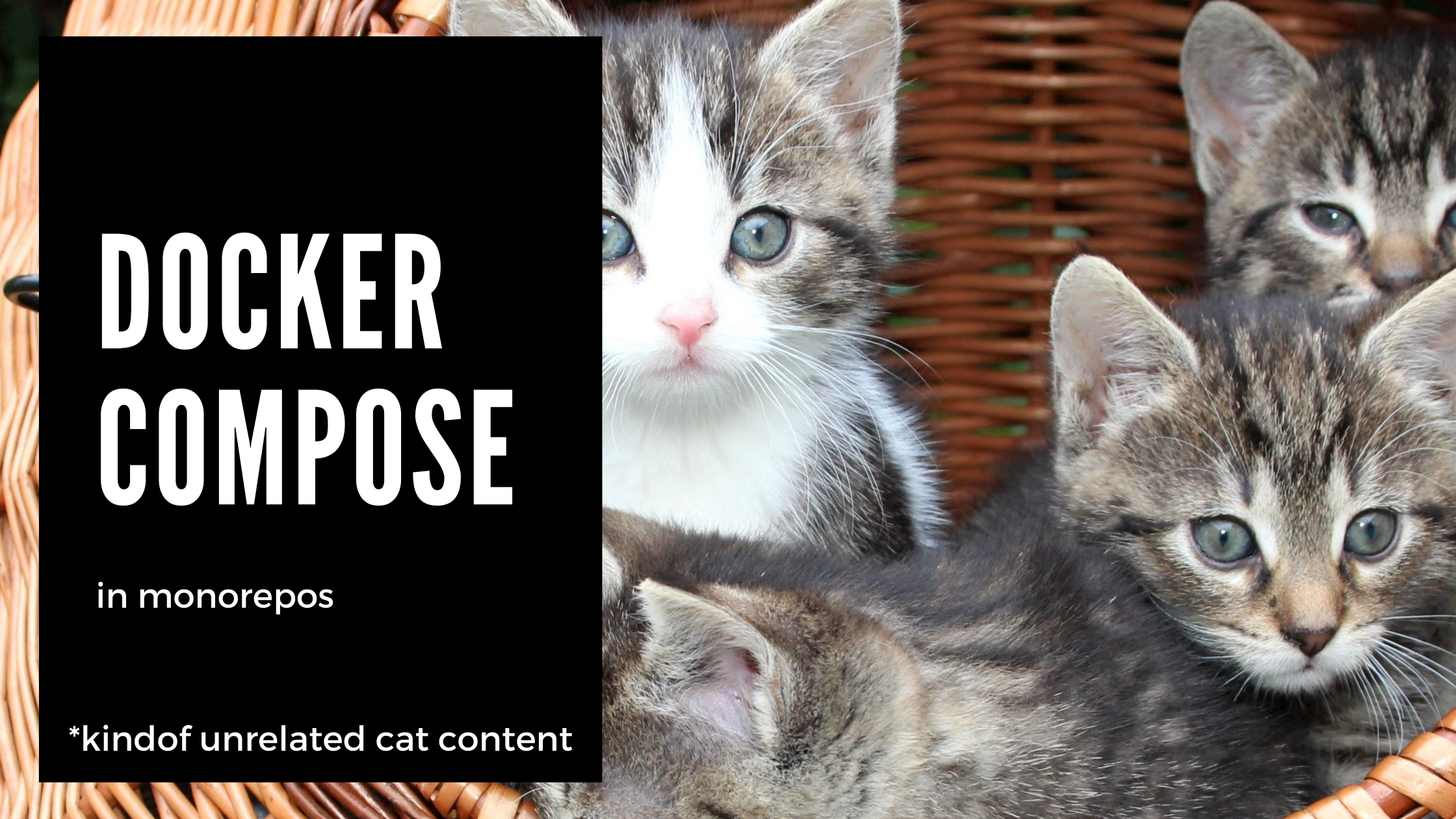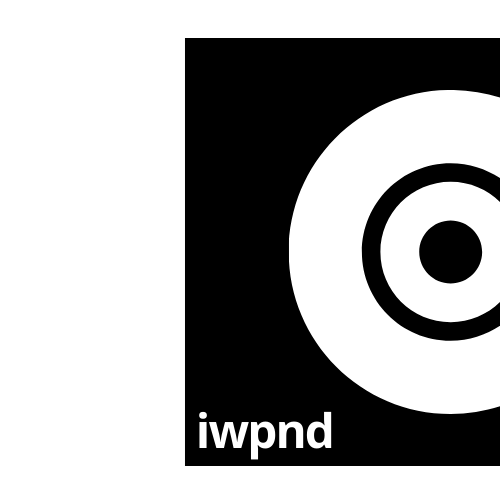docker-compose in monorepos

Monorepo
As I was joining TIER Mobility not only did I have to learn TypeScript quickly, but I also had to learn how to work with a monorepo - something that first felt weird, but I got to love quickly. The idea is that instead of having a package for every one of your services with its pre-commit hooks, lint setups, prettier configs, ci/cd pipelines, and whatnot, every service is instead a package in a single repository that is being orchestrated with yarn and Lerna. They share the same configurations, the same dependabot that keeps them up to date and you can even reference them from within each other. Do you have a logger that is used in all of your services? Have it as a package in the monorepo and import it in your other services.
Local development environment
One way or another you will want to have your development environment mirror your deployment environment. For that purpose, and because it comes shipped alongside Docker, you will probably use docker compose CLI and up your stack like that. In our monorepo, we started with a single docker-compose.yaml at the top level of our monorepo. We have our database, our Redis, and maybe something like RabbitMQ, that we tend to use across our stack consistently. All good and fine.
Until..
Our monorepo grew, and so did our stack.
There we had a docker-compose.yml that up RabbitMQ, Tile38, Redis, some databases, and Kafka - a stack that brings even the biggest machine to hold (if you run lofi.cafe) next to it. So instead of having a single docker-compose.yml, I created a file for each service within its package to only start what the service needed. Yarns task runner is pretty useful to set up each respective package.json with a up/down script.
{
"name": "my-service",
"scripts": {
"lint": "eslint --ext .ts src",
"test": "jest --testMatch '**/*.test.ts'",
"up": "docker compose up",
"down": "docker compose down"
}
}
Now if you work on a service, you can use yarn workspace my-service up to start the development environment with the dependencies you need for your service, and not those of your monorepo.
There is one more thing
This is already pretty helpful. However, something like Redis is more often used than not. That means that
redis:
image: redis:6.2.3
ports:
- 6379:6379
occurs in almost every docker-compose.yml across the entire monorepo. That means duplication, and you will have to make sure that the version is updated. So instead of duplicating a Redis service in every docker-compose file, today I learned that compose configurations can be shared across file and projects.
// monorepo/docker-compose.yml
version: "3"
services:
redis:
image: redis:5.0.6
ports:
- 6379:6379
(...) // other shared dependencies
// monorepo/packages/my-service/docker-compose.yml
version: "3"
services:
redis:
extends:
file: ../../docker-compose.yml
service: redis
(...) // other service dependencies
In this setup, Redis is added to the top-level docker-compose file and is extended in the services docker-compose file. If we now up the service with yarn workspace my-service up it will check for Redis in the top-level up it, and continue to add the dependencies as they are defined in the services docker-compose.
Do this sooner than later, and your monorepo is on course to grow indefinitely.
